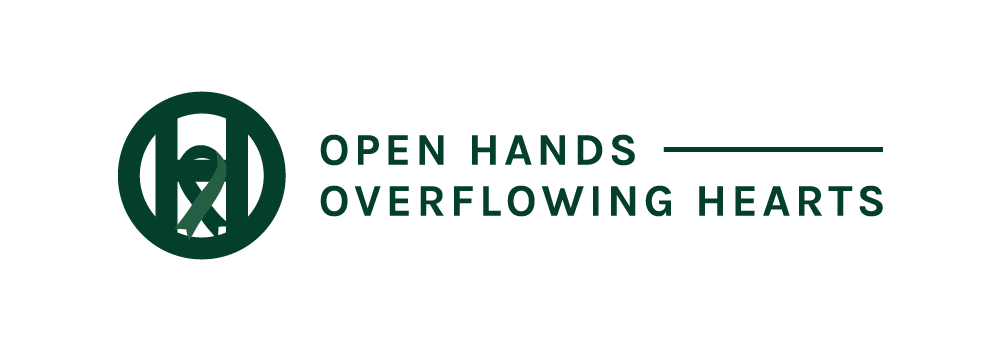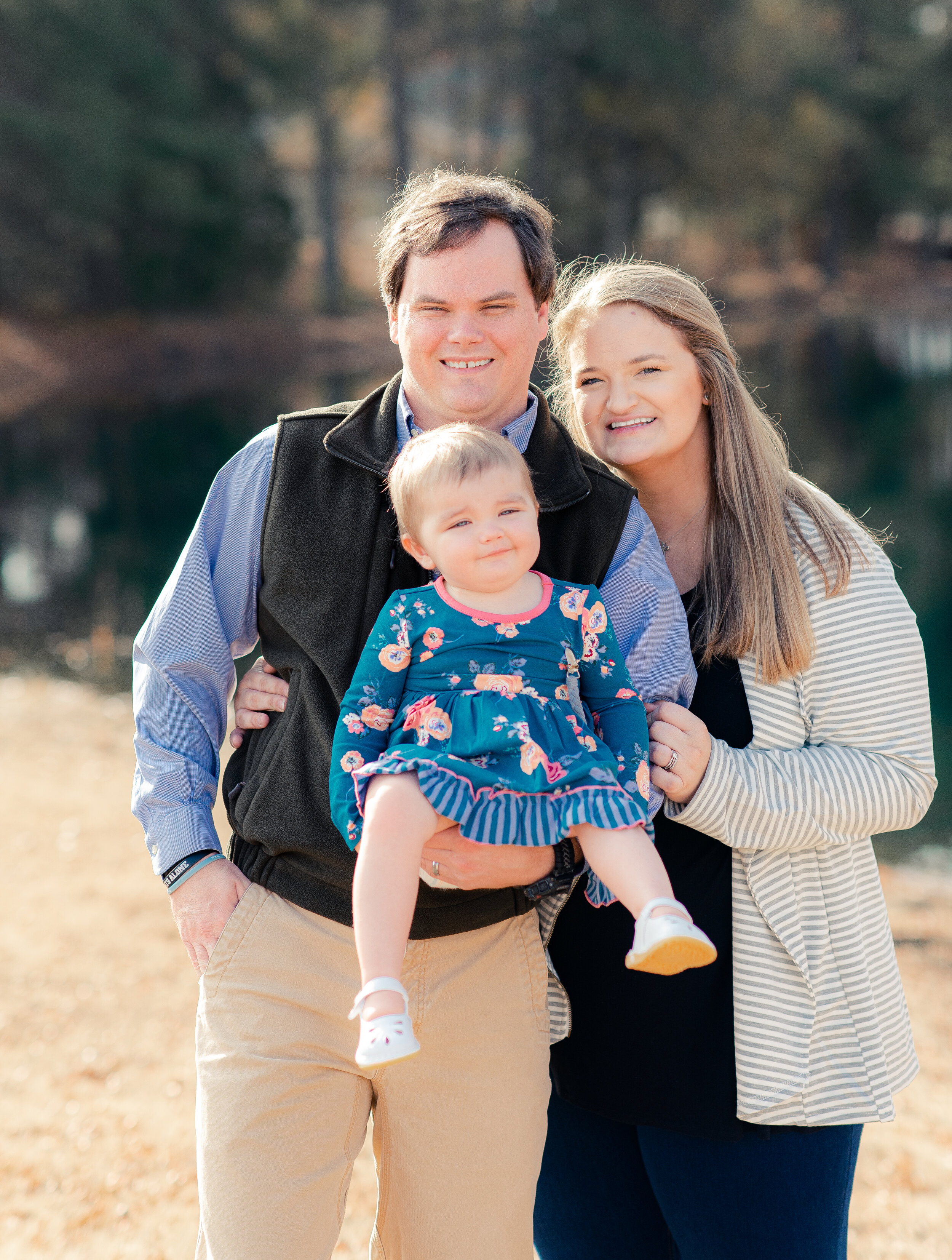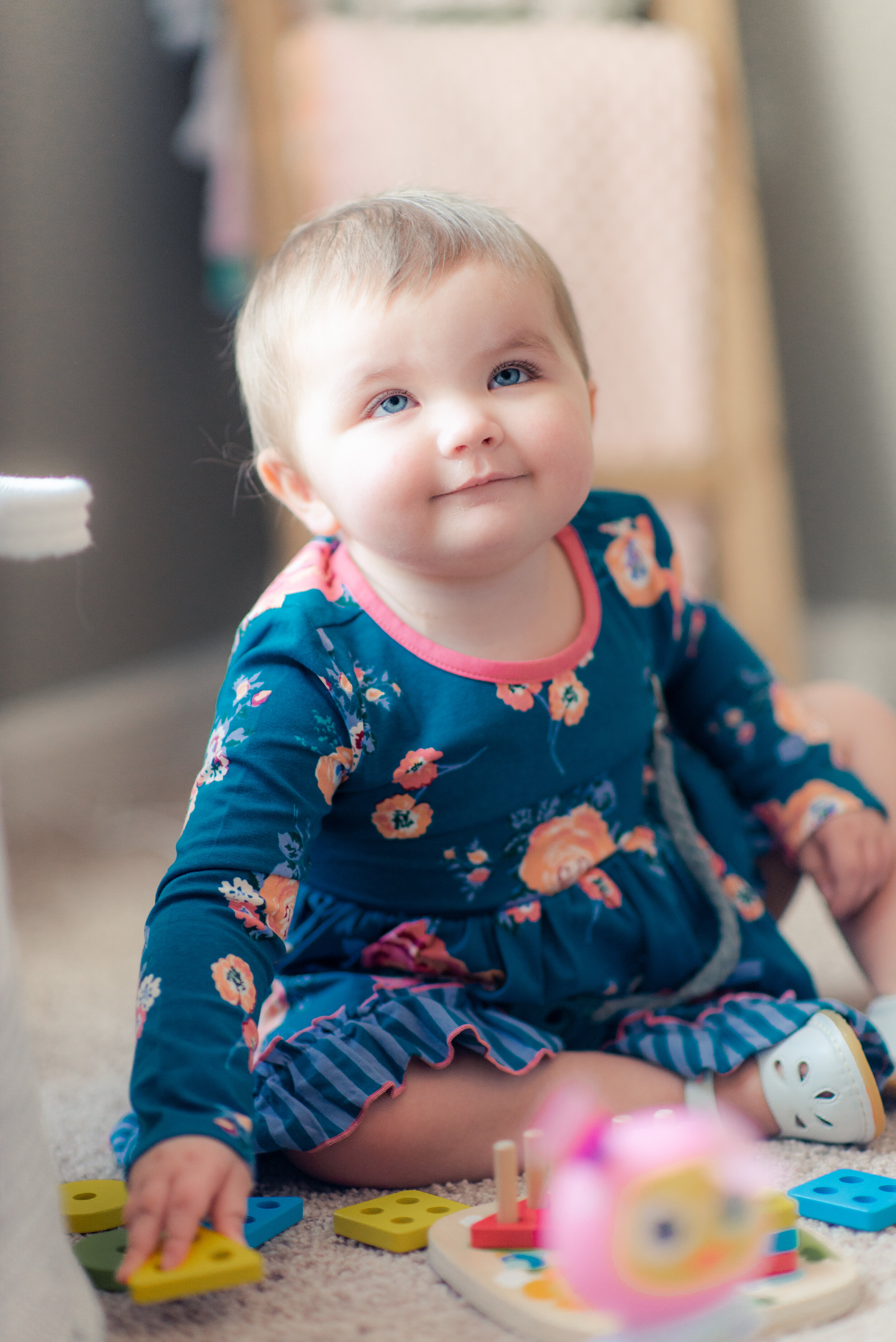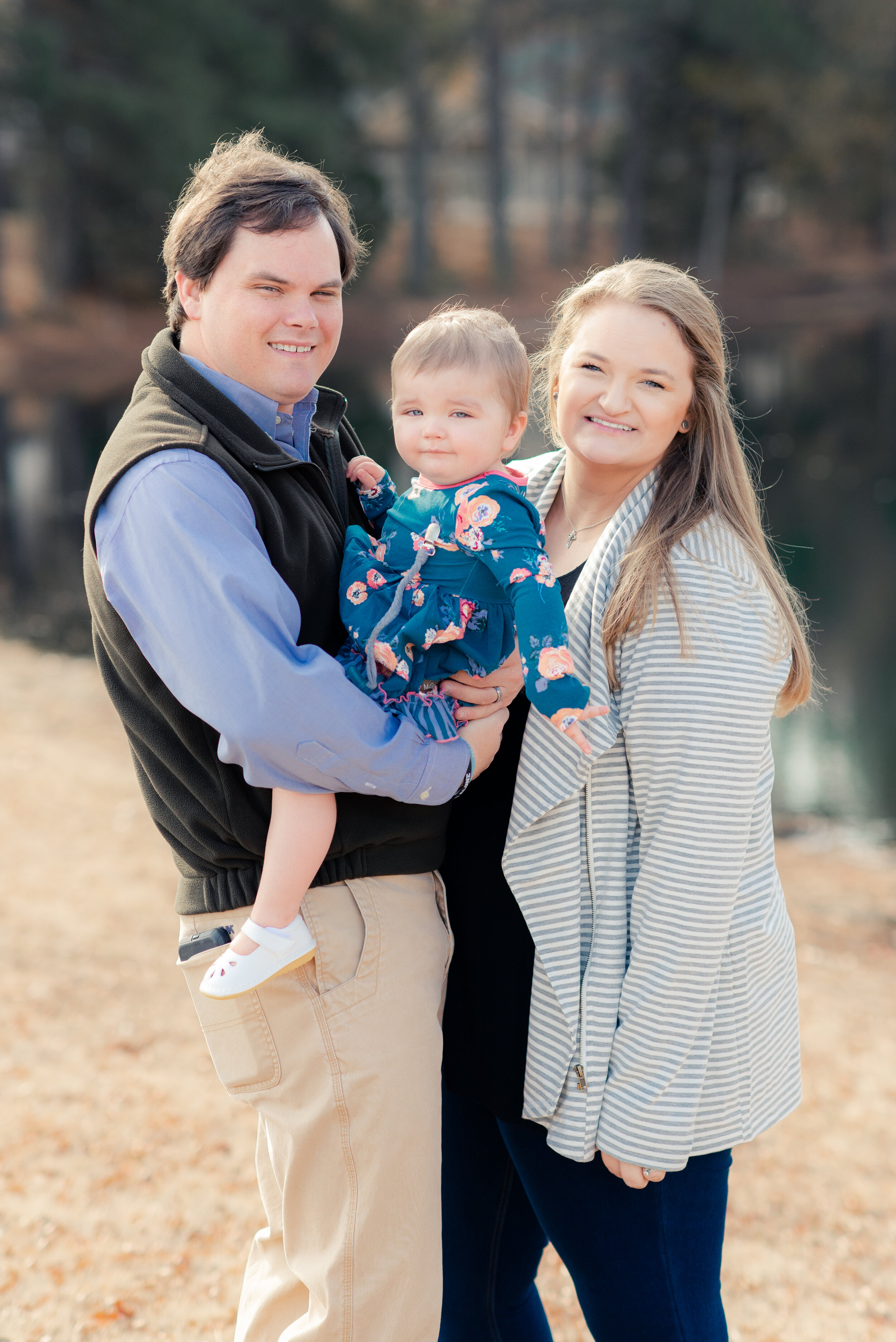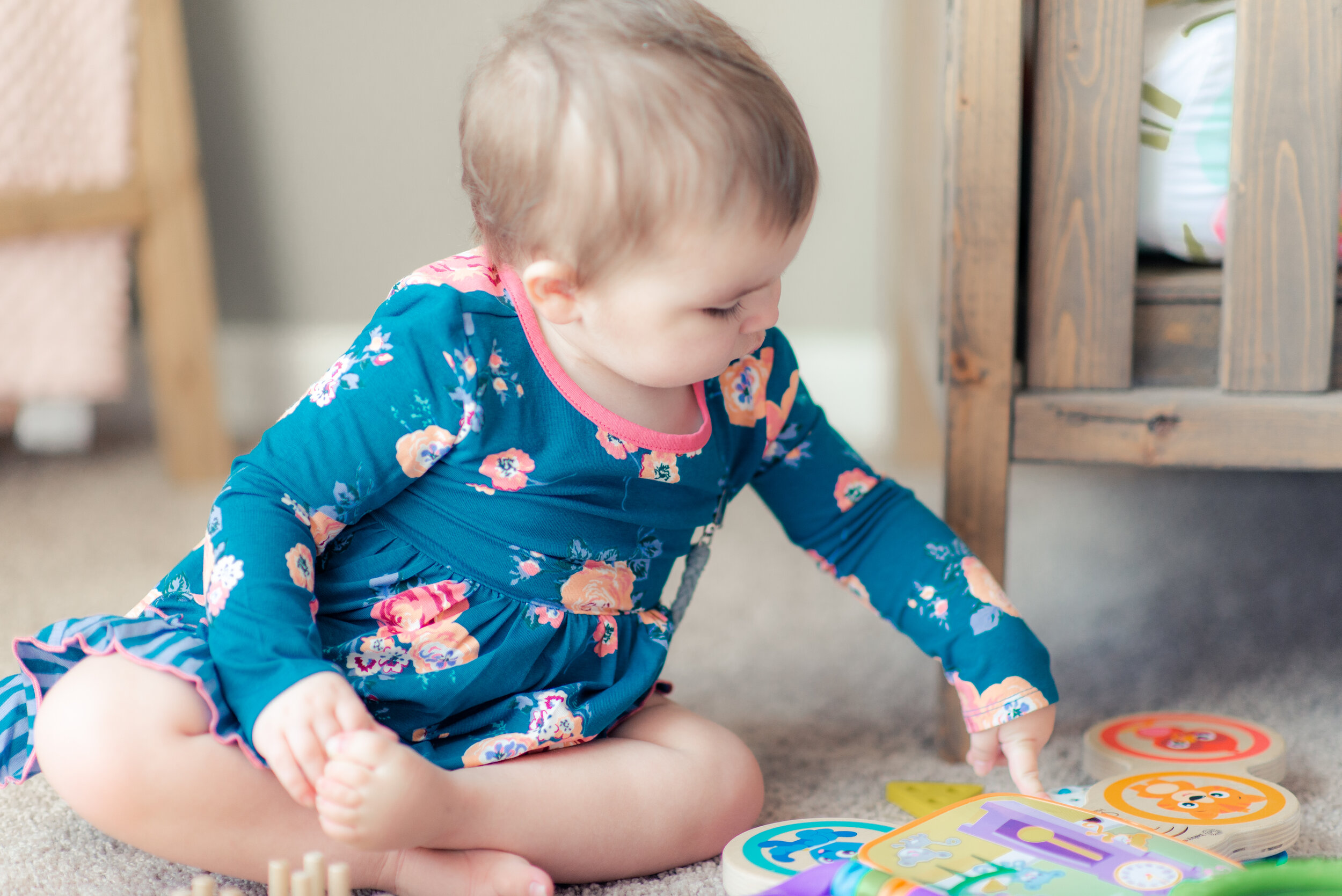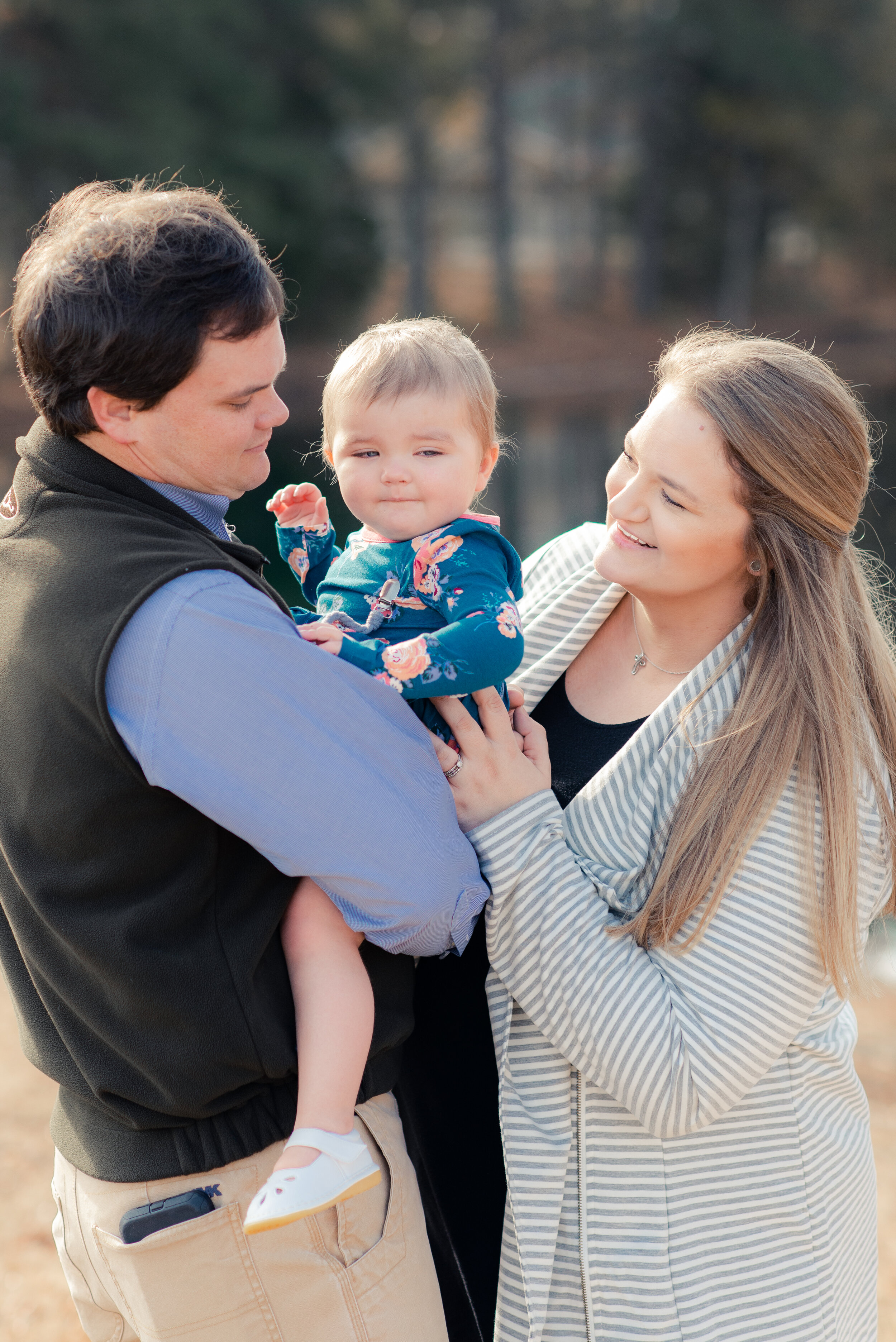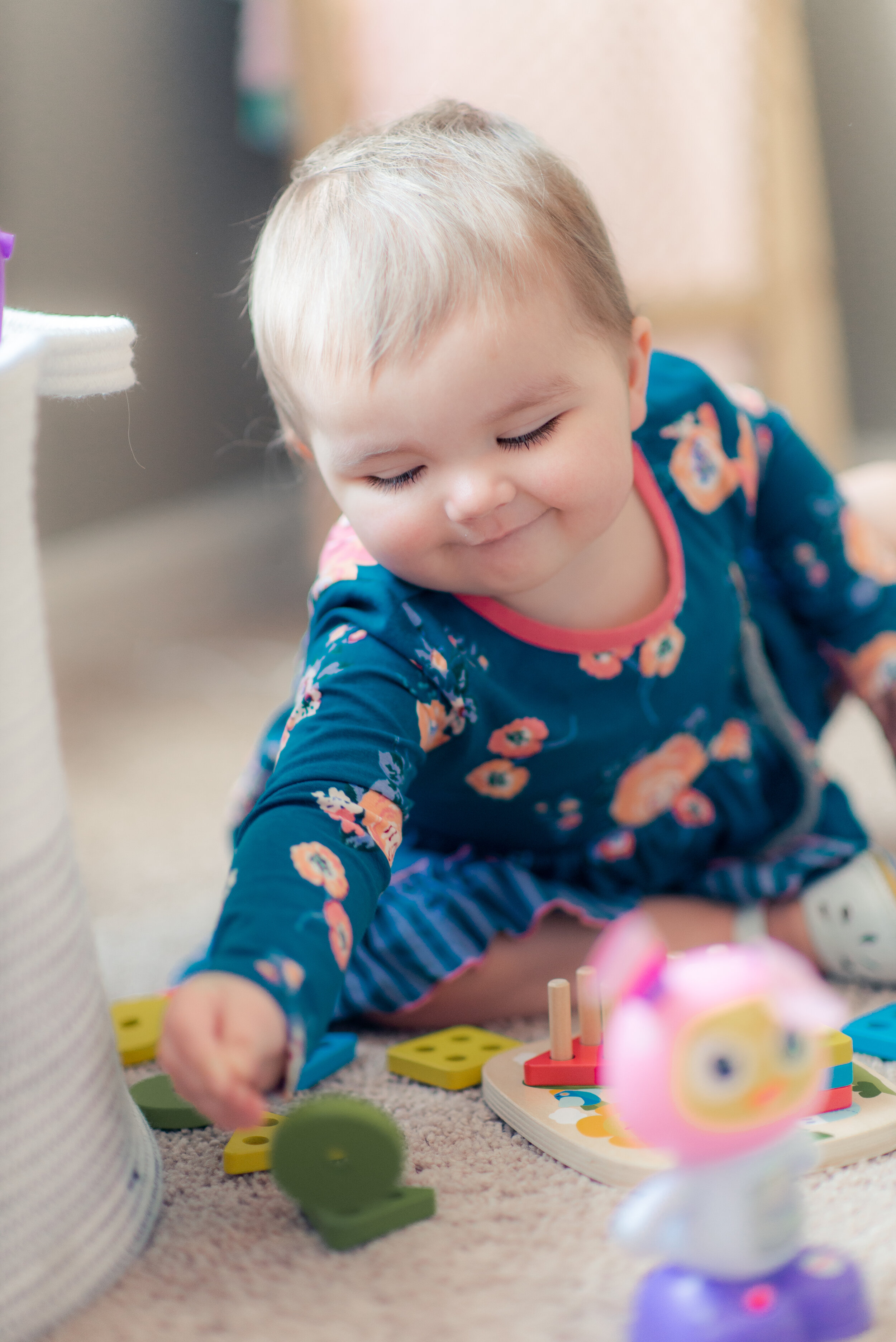November 2019
“I just knew something was wrong,” Megan tells me as she recounts the long, difficult weeks leading up to Kinsley’s diagnosis. The days of diarrhea, rashes, excruciating pain, and debilitating anxiety.
We are all sitting on the floor in Kinsley’s bedroom, enjoying the warm morning sunlight that’s coming through the window. I can’t help but notice how content Kinsley seems as she bobs her head to the cheery tune of “Ode to Joy” that’s coming from one of the many pink toys scattered across the nursery.
The happy Kinsley I see on this November morning seems incongruent with the reality I know to be true. How could this precious, sweet, silly little girl be fighting cancer?
Megan continues telling the story. She’s told it a hundred times before, but it still makes her tear up.
After a particularly odd rash, Kinsley ended up in the emergency room, where Megan and her husband David were told, “you don’t want to know what we’re thinking.”
With emotions running high, Kinsley and her parents waited over six hours for test results, but even after the cryptic communication from the ER doctor, they never even considered that they could be dealing with cancer.
“They finally told us it was cancer,” Megan says. “And apparently they told us it was leukemia at that point too, but I don’t remember. I kind of blacked out.”
They landed at Children’s Hospital of Alabama later that evening and started their crash course on Acute Lymphoblastic Leukemia (ALL). They learned that since Kinsley was only ten months old at diagnosis and her white blood count was over 200,000, her disease was classified as “very high-risk.”
The only time Megan had ever encountered leukemia before this day was in movies — A Walk to Remember and The Sisterhood of the Traveling Pants — and neither of those stories had happy endings.
“I had nothing in my experiences to refer to besides death,” Megan says. I can only imagine the numbing fear she must have felt as she processed the news.
The news wasn’t all bad, though. Kinsley tested negative for a genetic mutation that’s known for making leukemia harder to treat, and once treatment began, Kinsley responded very quickly.
The hospital became the Green family’s new home. Though David had to stay at their house in Madison, Alabama, quite a bit for work, Megan and Kinsley were at the hospital in Birmingham for ten months, coming home only a few times for weekend-long breaks.
David says being apart from Kinsley was the hardest part. “Driving back and forth, staying here at home when Kinsley and Megan were in Birmingham… It was really tough. You definitely have to hold on to your faith and rely on the power of prayer.”
“It was obviously sometimes super hard to be in the hospital,” Megan chimes in, “but I think you having to leave was harder, David.”
Megan could be there through the hard days. She could hold Kinsley, advocate for her, talk to her doctors. But David had to work if he wanted to keep their health insurance.
“I remember being here one night,” David says, “getting ready for bed, and getting a call from Megan saying something’s not right. And just saying, ‘okay, I’m on the way.’ But it’s 90 miles away. No matter how fast I drive, it’s still 90 miles away. That was hard.”
Kinsley’s days of long hospital stays are over now. After the ten month period of in-patient chemo treatments, Kinsley was admitted for 79 days due to a horrifying fungal infection. She’s experienced two medical traumas that left doctors believing she was out of options, but since then, she has flourished, and her treatments have been either out-patient or at home.
For a long time, Kinsley seemed to be in the clear.
May 2020
But just a few weeks ago, in the midst of all the COVID-19 chaos, all the positive progress seemed to stop when her routine lab check came back with suspicious results.
“It was honestly terrifying,” Megan tells me over Facebook messenger. “A feeling that I can’t describe. All signs on paper pointed to relapse.
“Thursday when they drew her labs it was bad, honestly. When we got the call we were prepared to be told that she relapsed. We had told our parents to be tested for COVID so they could come see her because we didn’t know what would come next.”
But Monday came around, and the doctors called to let Megan and David know that Kinsley’s labs recovered. She’s doing as well as ever.
I can practically feel Megan’s excitement when she says, “To say that we were overjoyed when we got good news would be the understatement of the century!”
When I visited the Greens in November, Kinsley wasn’t walking. But I’ve had the joy of watching her start learning to use her legs over Megan’s Instagram stories!
“She is doing great walking with her walker,” Megan says. “It gives her a sense of independence since she can’t really do anything without one of us helping her. It has given her a lot of confidence and she just loves it!”
Of course, many things still aren’t normal, and may never be. “Her speech is still extremely delayed, as well as her feeding skills, but we are taking it one day at a time. Because of COVID she can’t go to therapy anymore, so David and I have become her therapists with virtual help from all of her therapists.”
Megan has the most beautiful perspective. “She’ll never be truly ‘normal’ because of the crazy amount of chemo she got as a baby,” she tells me. “But we are so thankful that we get to figure it out with her. We’re lucky that we get to navigate the new normal of therapy and medicines and just be with her through it all.”
New information has come out recently about infantile ALL that only 1 in 3 kids survive. The disease behaves so differently from ALL in older children, and research now suggests that it occurs in about 1 out of every million babies.
I hope you’ll join me in hope for Kinsley’s continued healing, celebrating and sharing her story, and donating to research in her honor. I will do anything to end childhood cancer because Kinsley is worth it.
Until there’s a cure,
Kayla
